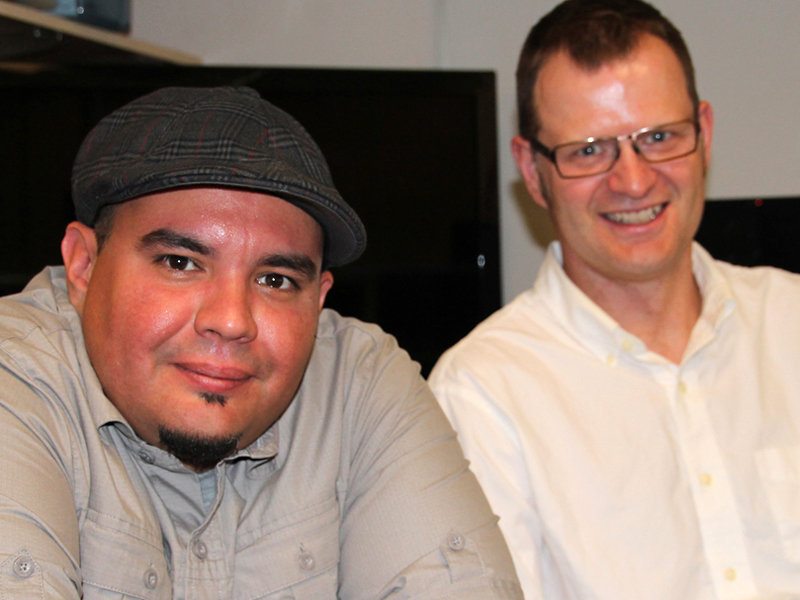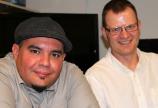Writing prof plugs into Tech & Society program
- John Threlfall

Considering how technology has impacted the publishing world, it’s no surprise that Department of Writing professor David Leach has been named the new director of the Technology and Society program. “Because it’s an interdisciplinary minor, we almost need a ringmaster who’s not necessarily an expert in every area but is comfortable making those connections,” says Leach. “My journalistic background helps, having seen how digital technologies transformed the music industry and is currently transforming journalism and publishing.”
Leach takes over the three-year-old program from outgoing director Bradley Bryan (political science) and is excited to be helming a minor full of such “intellectual and creative friction.” With students from numerous faculties and a mix of lecture and discussion courses, the program will also benefit from the presence of Jackson 2Bears as an instructor. An Indigenous multimedia artist with an interdisciplinary PhD, 2Bears is no stranger to the impact of technology on society.
“We’re dealing with stuff that every student will have a stake in,” says 2Bears. “There are ways we interact with technology that deeply affect us . . . whether you're talking secondary memory devices or how computers have changed the world. It’s important to have a survey course that navigates all these different areas.”
2Bears will be leading TS300 (“Networking, New Media and Social Practices”), but, much like the program itself, he’ll be approaching the subject from a new direction. “I don’t envision telling people about this subject,” he says. “It’ll be more about starting a discussion and then learning together. Really, it’s about the idea that the classroom is out there in the world—it's not just in a building, in a room.”
Leach agrees. "Education is right on the cusp of being transformed by technology,” he explains. “How we teach at university is being challenged by technology, so it's worth having that conversation with students—since they clearly have a stake in it as well."
Leach points out some of the dynamic interdisciplinary work already being done on campus—in the fields of privacy and surveillance, computers and music, environmental issues and publishing, for example, or the development of video games as tools for treating autism and educating about First Nations treaties.
“Even though this is a small minor, I envision it being able to bring together the expertise and the enthusiasm of so many people across campus,” he says, noting the efforts of the Pacific Centre for Technology and Culture, education’s Technology Integration and Evaluation (TIE) Research Lab, history’s John Lutz, and Ray Siemens and the digital humanities, among many others. “There are all these interesting nodes that already exist across campus; it’s just another way of drawing them in, letting students access that expertise.”
Making the classic time-out “T” gesture with his hands, Leach explains the goal of the program is to create what he describes as the “ideal T-student.”
“We’re talking about students who have that real depth of expertise in a particular field—a major in poli-sci, writing or computer science—but supported by a minor like this one that isn't based in any one faculty or department. Then they get that broader knowledge—the ability to communicate with students and experts, and learn how to collaborate together, but not speak in jargon.”
More info: http://web.uvic.ca/techsoc

